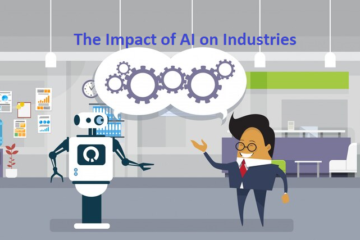Machine learning has emerged as a transformative technology, driving innovation across various industries and reshaping the way we interact with data. As we embark on a new year, it’s essential to examine the evolving landscape of machine learning and anticipate the trends that will shape its trajectory in 2024. In this article, we’ll explore the cutting-edge advancements and emerging trends that promise to revolutionize the field of machine learning in the coming year.
Federated Learning and Privacy-Preserving Techniques:
Privacy concerns continue to loom large in the era of big data and artificial intelligence. Federated learning has emerged as a promising approach to address these concerns by enabling model training across decentralized devices while preserving data privacy. In 2024, we anticipate wider adoption of federated learning techniques across industries, particularly in healthcare, finance, and IoT applications. Additionally, advancements in privacy-preserving techniques, such as differential privacy and homomorphic encryption, will play a crucial role in enabling secure and ethical machine learning practices.
Explainable AI and Model Interpretability:
As machine learning models become increasingly complex, there is a growing demand for transparency and interpretability. Explainable AI (XAI) techniques aim to demystify black-box models and provide insights into how predictions are made. In 2024, we expect to see greater emphasis on model interpretability, driven by regulatory requirements, ethical considerations, and the need for user trust. XAI techniques such as attention mechanisms, feature importance analysis, and model-agnostic interpretability methods will gain traction, enabling stakeholders to understand, validate, and trust machine learning models.
AutoML and Democratization of Machine Learning:
The democratization of machine learning has been a key trend in recent years, driven by the proliferation of AutoML platforms and tools. In 2024, we anticipate further democratization of machine learning, with AutoML platforms becoming more accessible and user-friendly. These platforms empower users with limited machine learning expertise to build, deploy, and manage machine learning models autonomously, democratizing access to AI capabilities across organizations and industries. Additionally, AutoML tools will continue to evolve, offering advanced features such as automated feature engineering, hyperparameter optimization, and model explainability.
Multi-modal Learning and Cross-domain Integration:
Traditional machine learning approaches often focus on unimodal data sources, such as text, images, or audio. However, real-world data is inherently multi-modal, comprising diverse sources of information. In 2024, we anticipate a surge in multi-modal learning techniques that can effectively integrate and leverage information from disparate modalities. Multi-modal models will enable more robust and comprehensive understanding of complex data, leading to breakthroughs in applications such as natural language processing, computer vision, and multimodal fusion. Cross-domain integration of machine learning techniques will also drive innovation, facilitating knowledge transfer and synergy across different domains and disciplines.
Responsible AI and Ethical Considerations:
As machine learning applications become more pervasive, the need for responsible AI practices becomes increasingly critical. In 2024, we expect heightened awareness and emphasis on ethical considerations, fairness, accountability, and transparency in machine learning. Organizations will prioritize responsible AI principles throughout the machine learning lifecycle, from data collection and model development to deployment and monitoring. Ethical AI frameworks, guidelines, and regulatory standards will shape the development and deployment of machine learning systems, ensuring that AI technologies are deployed in a manner that aligns with societal values and respects human rights.
Conclusion:
The year 2024 promises to be an exciting and transformative period for machine learning, marked by advancements in federated learning, explainable AI, AutoML, multi-modal learning, and responsible AI. As organizations harness the power of machine learning to drive innovation and solve complex challenges, it is essential to remain vigilant about the ethical implications and societal impact of AI technologies. By embracing emerging trends and adopting responsible AI practices, we can unlock the full potential of machine learning to create a more inclusive, equitable, and sustainable future.





